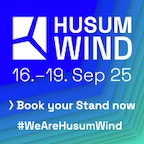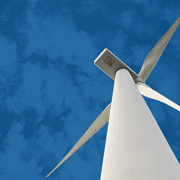On 31 October, international renewable energy developers will submit proposals to Abu Dhabi to develop a 2 gigawatt (GW) solar scheme in the emirate – the biggest single-site solar project in the world.
Andrew Roscoe, Editor at GlobalData’s MEED energy comments: “The United Arab Emirates (UAE) is now a leading player in the development of large-scale renewable energy schemes. It is also making remarkable progress on its ambitious path towards 44% of its energy coming from renewable sources by 2050.
“The 2GW project provides a clear indication of the emirate’s strategy for producing energy. The peak power produced from the emirate’s large photovoltaic (PV) plants will enable increased flexibility in the grid, with 5.6GW of baseload capacity due to come online in the next few years from the Barakah nuclear project currently being developed.
“Increased grid flexibility will complement Abu Dhabi’s move to decouple power and water.
“The latest project shows that solar schemes are no longer simply vanity projects for the Gulf’s oil-rich countries. They form a key part of long-term energy goals.”
The tender for the 2GW scheme at Al-Dhafra in Abu Dhabi came just two days after the emirate commissioned the world’s current largest single-site solar project.
Having completed the largest solar project in the world – the 1.17GW Sweihan photovoltaic (PV) solar project in Abu Dhabi, Emirates Water & Electricity Company (Ewec) issued a request for proposals (RFP) for a 2GW PV solar project planned for the Al-Dhafra area of the emirate.
The project has attracted significant interest from almost 50 companies from the global renewable energy market, of which 25 participated in the prequalification process.
Dubai is also pressing ahead with several world-scale renewable energy schemes. Following the success of its initial forays into the PV solar world, Dubai turned its attention to thermal concentrated solar power (CSP) for the fourth phase of its ambitious Mohammed bin Rashid (MBR) solar park. It is expected to have a total capacity of 5,000MW by 2030.
Roscoe continues: “While CSP is more expensive than PV solar, it offers the advantage of energy storage to enable electricity production after daylight hours.”
While the majority of renewable energy capacity installed by 2030 will emanate from the MBR solar development, Dubai is relying on the successful implementation of its ambitious Shams rooftop solar programme to meet its 75% clean energy goal by 2050. The Shams initiative encourages businesses and residences to install solar panels connected to the grid under a net-metering agreement. Users then receive a reduction on energy bills for the power that their facility produces.
The emirate is also moving ahead with studies to assess the potential for wind power, which had previously been considered unsuitable due to the UAE’s lack of suitable wind speeds.
For more information
To gain access to our latest press releases: GlobalData Media Centre
Please contact the GlobalData Press Office for comment:
EMEA & Americas: +44 (0)207 832 4399
Asia-Pacific: +91 40 6616 6809
Email: pr@globaldata.com
For expert analysis on developments in your industry, please connect with us on:
GlobalData | LinkedIn | Twitter
About GlobalData
4,000 of the world’s largest companies, including over 70% of FTSE 100 and 60% of Fortune 100 companies, make more timely and better business decisions thanks to GlobalData’s unique data, expert analysis and innovative solutions, all in one platform. GlobalData’s mission is to help our clients decode the future to be more successful and innovative across a range of industries, including the healthcare, consumer, retail, financial, technology and professional services sectors.























